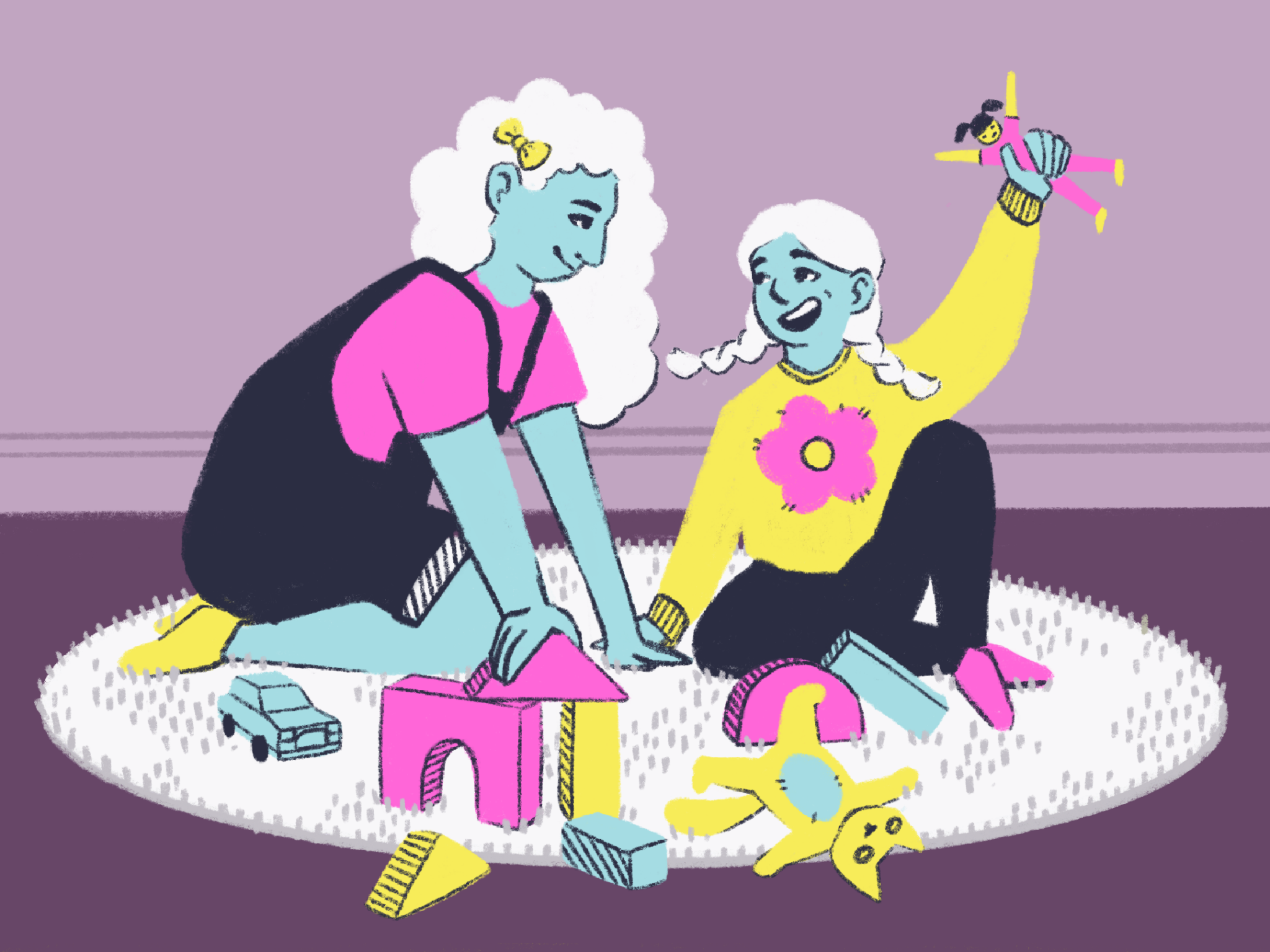
Cate Roser
“Mommy, when are we going to return Mina to the hospital?”
Apparently, that’s what I asked my mother after a month of having my younger sister, Mina, in the house. In my defense — besides the fact that I was a two-and-a-half-year-old — I thought the sudden appearance of our family’s fourth member would mean I’d have someone to play dress up with. Nobody told me that she would move into my room only to sleep, get breastfed and cry.
Looking back, I feel like I needed time to adjust, but my family always talks about the affectionate older sister I was: never jealous and always kind. I’m not sure Mina would quite agree, but isn’t disagreement what siblings are for?
As I assumed my role as the elder sister, I had to accept there would be some changes in my well-organized life as a three-year-old. I started going to nursery school; I was kicked out of my own room; daily activities were planned according to Mina’s nap schedule; people were always more excited to see the baby.
With time, even our night routines had to undergo some adjustments. I wasn’t particularly fond of them, but I still got to listen to bedtime stories and I knew this privilege would be revoked if I complained. I did, however, have to go to Mina’s room to listen to my mother collectively read us “Guess How Much I Love You.” I wanted to speed through the pages I knew by heart — “I love you as high as I can reach!,” “I love you across the river and over the hills!” -— but we had to wait for Mina to examine the illustrations of the “Little Nutbrown Hare” which were still very new to her. My mother then sang Mina songs until she fell asleep in her arms. I had to get used to receiving one armed hugs and putting myself to bed.
I think another issue was that my competitive side wasn’t really subdued; I couldn’t exactly grasp the fact that we were at different ages and skill levels. Whenever my father tried to record Mina standing in front of a wall for the first time, I’d run up to the wall and show the camera how well I could walk. Likewise, I wanted to be the one praised for wearing the cute pink dress my mother picked out for me. But I wasn’t the only child in the family anymore.
Growing up arguing over anything and everything — would we bake cookies or cupcakes, who would get to wear the blue sweater, whether we should watch “Dora the Explorer” or “Mickey Mouse” — there were definitely times we found each other unbearable. I thought she was never able to get the dance choreography right; she, on the other hand, found me to be too bossy. Yet somehow, as years went by, all the absurd quarrels were what brought us closer together. Turns out, we needed a few conflicts to fully appreciate each other.
As she got older, and was able to do more than giggle to my variation of “Twinkle Twinkle Little Star,” I began to see her more as a friend. When summer came, I could be the one to make sure she put on sunscreen; when it was winter, I could teach her how to get back up after falling while skiing. I loved seeing her in my hand-me-downs, showing her all of my favorite hair styles and beloved hair clips, drawing portraits of her, teaching her the notes on my piano and even reading to her as I began to learn how to read myself. Now I could be the one to love her “right up to the moon — and back.”
The adjustments took time but helped me realize I enjoyed growing up. All of a sudden, I noticed I had a lot I wanted to share with her. Love, joy, curiosity, frustration, anxiety, sadness… She slowly became the outlet for all of my emotions. When I wanted someone to join me in a game of Uno, she was there. When I needed someone to rant to about an argument I had with one of our parents that day, she was there. When I found the answers to my never-ending questions at school and wanted someone to tell them to, she was there. The potential of sharing was limitless: borrowing sweaters, making to-do lists, getting each other coffee, sharing class notes from previous years… the list goes on and on. I realized life is much more enjoyable when you always have a companion with you — one you can’t get rid of, even if you want to at times. Even with the most trivial conflicts, we were always there to listen, annoy each other and then eventually solve the problem at hand. If my only worry was that I was bored of studying and wanted to sit on the floor of her room for a while, I knew my best friend was there for me in the next room.
It’s weird growing up with a sister. Normally, you get to choose the people you want to spend time with. In the case of siblings, the universe (and your parents) makes the decision for you. Adjusting to it, figuring out the disagreement of sisterhood brings life meaning, definitely has a learning curve. But once you get there, it makes you feel like the luckiest person on the planet.







